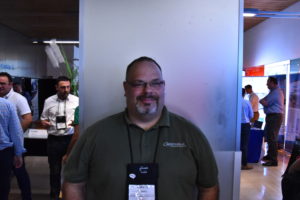David Williams - Berthold Technologies
With refiners pushing to maximize value, they turn to processing opportunity crudes. These crudes have issues when it comes to refining them to usable products, mainly the amount of resid. Traditionally, refiners have used delayed coking to process the resid further, but more refiners are turning to resid hydrocrackers, either ebullated bed or slurry-based units. These units have higher conversion rates than a delayed coker which makes them very attractive to refiners. The resid hydrocrackers are more challenging to operate than a DCU due to the complex set of vessels for the reactions, catalyst handling and separating units not to mention the challenge of process resid at high temperatures and pressures in the presence of hydrogen. Radiometric measurements are used in these applications to provide control of these units. The reactors use multiple density units to help control levels to ensure proper control, but they can also provide extra information that can be used to increase production. Sometimes the importance of these density measurement points is understated.
 David Williams works with process technology providers to improve the level and density measurements in challenging applications such as resid hydrocrackers, delayed cokers, solvent deasphalting, desalters and other refinery/petrochemical/chemical applications. He has a BS in Nuclear Engineering Technology and has obtained a vast knowledge of refinery and petrochemical processes by being to over 100 different refineries around the world including 86 different delayed coking units and 12 resid hydrocrackers (both ebullated bed and slurry bed).
David Williams works with process technology providers to improve the level and density measurements in challenging applications such as resid hydrocrackers, delayed cokers, solvent deasphalting, desalters and other refinery/petrochemical/chemical applications. He has a BS in Nuclear Engineering Technology and has obtained a vast knowledge of refinery and petrochemical processes by being to over 100 different refineries around the world including 86 different delayed coking units and 12 resid hydrocrackers (both ebullated bed and slurry bed).






